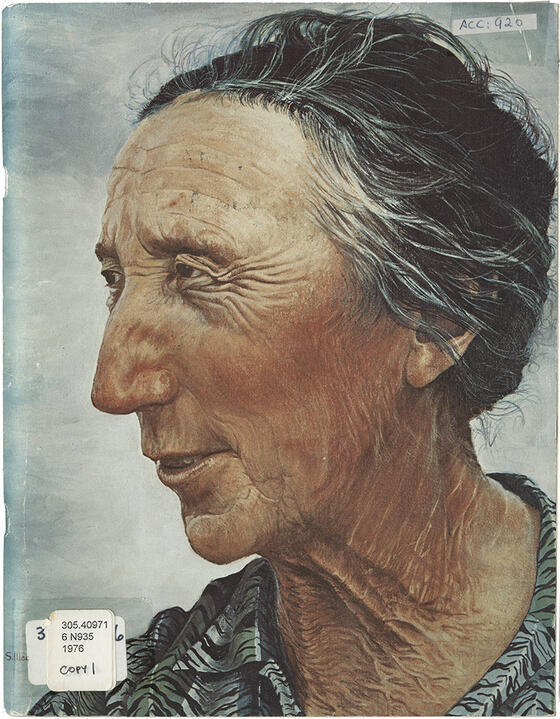
Title and statement of responsibility area
Title proper
General material designation
Parallel title
Other title information
Title statements of responsibility
Title notes
Level of description
Repository
Reference code
Edition area
Edition statement
Edition statement of responsibility
Class of material specific details area
Statement of scale (cartographic)
Statement of projection (cartographic)
Statement of coordinates (cartographic)
Statement of scale (architectural)
Issuing jurisdiction and denomination (philatelic)
Dates of creation area
Date(s)
-
1975-1976 (Creation)
- Creator
- Nova Scotia. Human Rights Commission. Minister’s Task Force on the Status of Women
Physical description area
Physical description
19 cm of textual records
Publisher's series area
Title proper of publisher's series
Parallel titles of publisher's series
Other title information of publisher's series
Statement of responsibility relating to publisher's series
Numbering within publisher's series
Note on publisher's series
Archival description area
Name of creator
Administrative history
The Nova Scotia Minister’s Task Force on the Status of Women was initiated in April 1975 by the Government of Nova Scotia (NS). Mairi Macdonald was appointed chairperson with 7 women members appointed as co-commissioners. Their mandate was to study the federal Royal Commission on the Status of Women in Canada (1970) report regarding implementation of its recommendations falling under provincial jurisdiction; to report on the legal, social, and political status of women in Nova Scotia and make recommendations for improving their lives. It held small-group meetings with nearly 2000 women, conducted 29 public hearings, and 60 “work sessions”, and received 300 written submissions. Topics addressed included women’s work inside and outside the home, childcare, the need for external supports, their physical and mental health, learning opportunities, and responsibilities and rights under the Law. The Task Force submitted its final report containing 95 recommendations for change to Allan Sullivan, Attorney-General and NS Minister for Human Rights Commission, on March 31, 1976 and then disbanded.
Custodial history
Scope and content
Consists of submissions received from individuals and community groups from across Nova Scotia (1975); the planning meeting minutes of the Task Force (1975-1976); a transcript of the final public hearing, held in Halifax (Oct 30, 1975); and a copy of the published report presented to Government (March 1976).
Submissions include hand-written letters, formal briefs, and transcripts of presentations made at the hearings. They are organized by meeting/hearing location in alphabetical order by place name. Each location contains a list of what was submitted (letter, brief or transcript) and by whom.
Notes area
Physical condition
Immediate source of acquisition
Transferred from the Nova Scotia Government.
Arrangement
Language of material
Script of material
Location of originals
Availability of other formats
The summary of recommendations from the final report “Herself / Elle-Même” are available in digital format on the Council of Nova Scotia Archives’ website, Community Albums.
Restrictions on access
Terms governing use, reproduction, and publication
Finding aids
Associated materials
Report Herself / Elle-Même (Government of Nova Scotia, 1976) available in the Nova Scotia Archives Library.
